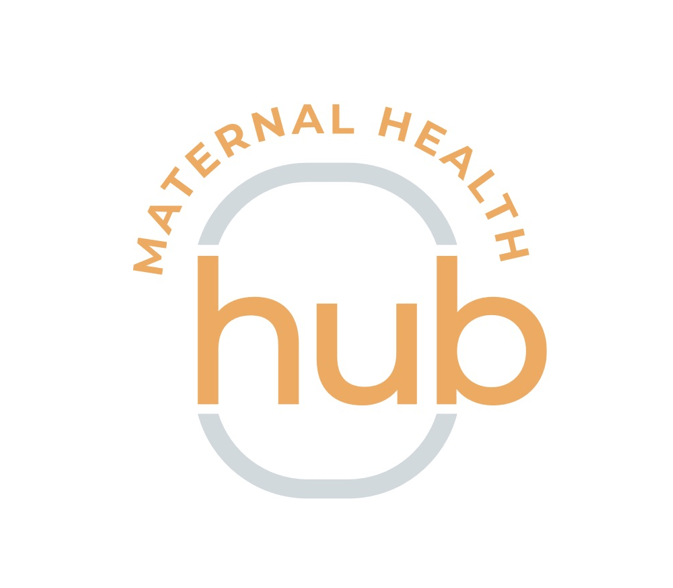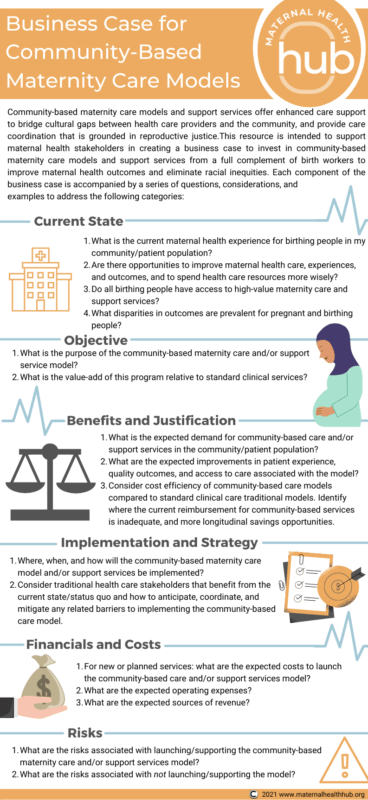This resource is intended to support maternal health stakeholders (e.g., health care providers, birth workers, patient advocates, insurers, and policymakers) in creating a business case to invest in community-based maternity care models and support services from a full complement of birth workers to improve maternal health outcomes and eliminate racial inequities.
Community-based maternity care models and support services offer enhanced care and support from the prenatal through postpartum periods and care coordination that is grounded in reproductive justice. Advancing community-based maternity care and support services can expand access to maternity care that meets the following high-value characteristics:
- Equitable, person-centered, culturally congruent, respectful
- Consistent quality, safety, and equity regardless of individual characteristics including race and ethnicity, age, language, payer or insurance status
- Reductions in severe morbidity and mortality
- Integrated and coordinated care across physical, mental, behavioral, and social needs
- Honors the pregnant person’s preferences in concert with risk appropriate care
- Does no harm, reduces medical overutilization and underutilization, and provides transparent information about cost and outcomes
The components that follow can serve as a template to assess the current state of maternity care and support services, create a business plan for offering or supporting the development of new maternal health services, and facilitate strategic conversations and planning to establish and support new models, financially or otherwise. Each component of the business case is accompanied by a series of questions, considerations, and examples to address the following categories: 1) Current state, 2) Objective, 3) Benefits and justification, 4) Implementation strategy, 5) Financials and costs, and 6) Risks.
Download the Business Case Template (Word Doc)
View the Press Release (PDF)
Supported by The Commonwealth Fund, a national, private foundation based in New York City that supports independent research on health care issues and makes grants to improve health care practice and policy. The views presented here are those of the author and not necessarily those of The Commonwealth Fund, its directors, officers, or staff.

